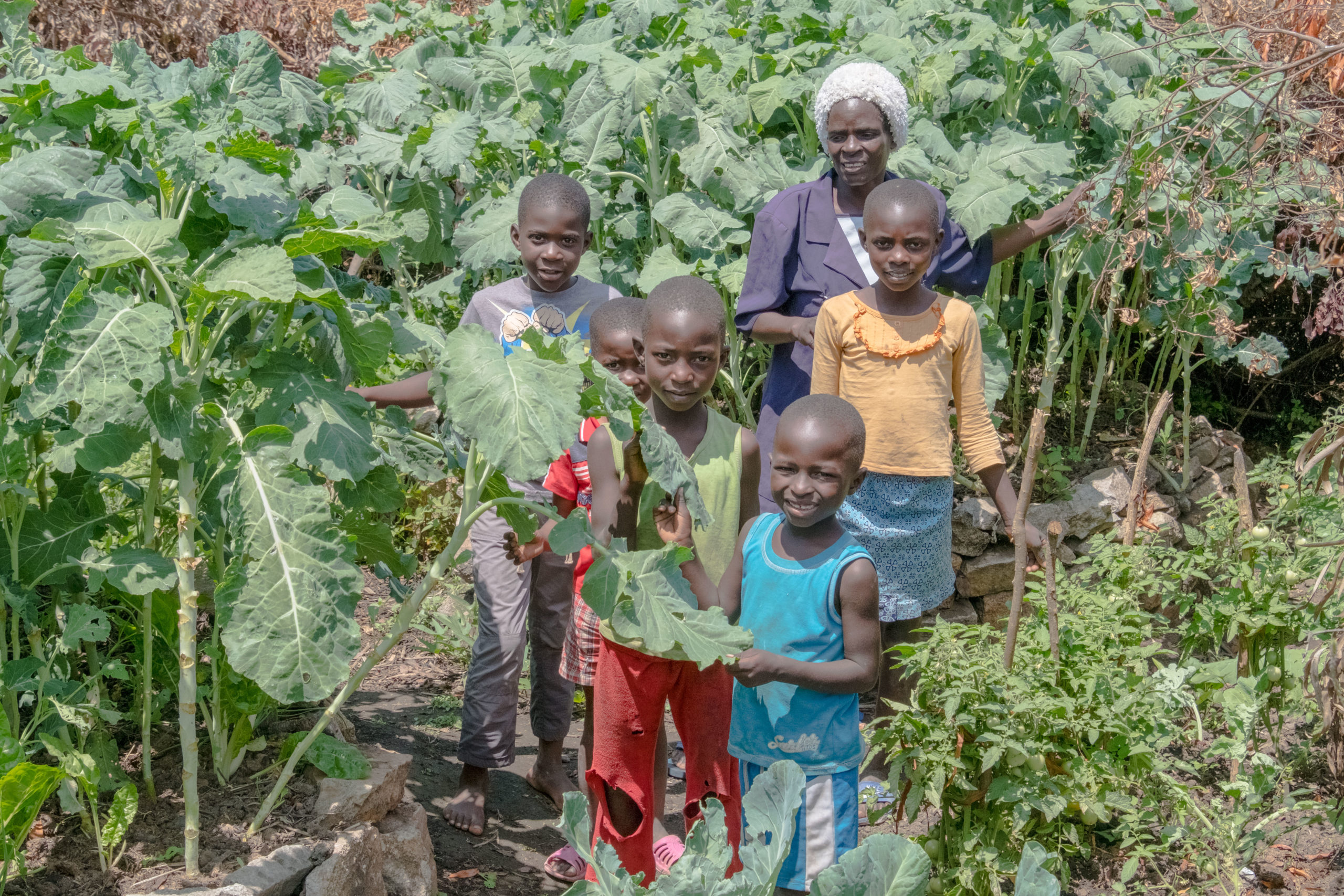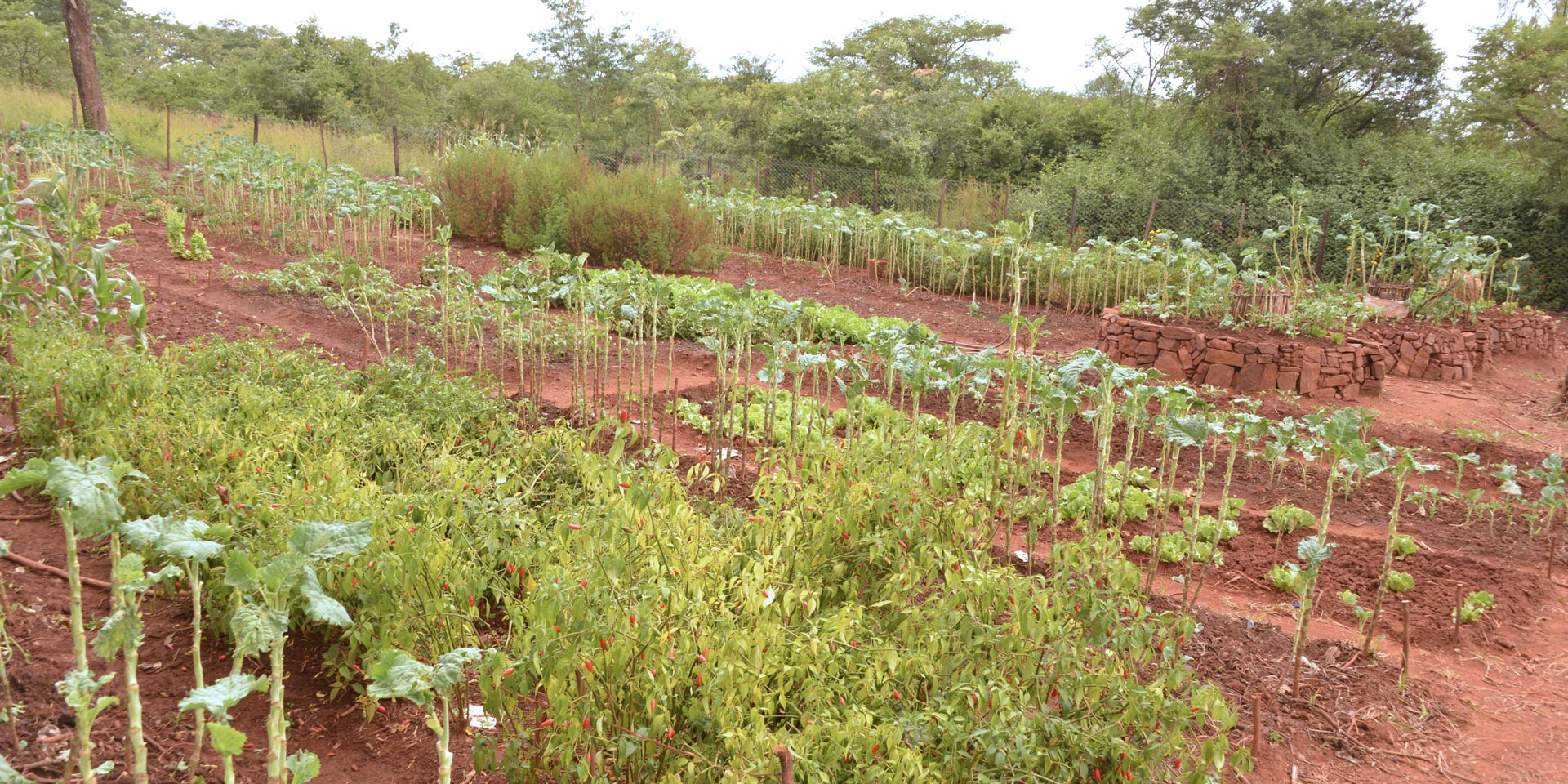Biointensive farming is taking families from food deprivation to self-sufficiency and even surplus.
Biointensive farming is an organic system of growing that generates maximum yields in the smallest space using no chemical fertilizers or pesticides. Families using biointensive methods can expect a two to six-fold increase in the output of their land.
Biointensive methods can change...

Eight elements, each critical, work together for sustainability and maximum impact:
- Double-dug raised beds: The surface area is dug down two shovel blade lengths so plant roots can easily get the air, water and nutrients they need.
- Composting: A diversity of organic material is used to build healthy soil.
- Intensive planting: Plant leaves touch to reduce evaporation, inhibit weeds, protect microorganisms in the soil, and maximize yields.
- Compost farming: Some crops are grown specifically for making compost; a key to sustainability.
- Calorie farming: The balance of plants are selected for calories and nutrition.
- Companion planting: Certain plants, like beans and corn, do better when grown together. Others are chosen to repel pests or attract beneficial insects.
- Open-pollinated seeds: Also known as heritage seeds, they have been selected and saved for generations for their adaptability to local conditions.
- "Whole system approach": Traditional methods such as crop rotation, systematic replanting and the optimal timing of harvests can create 2-6 times as much food per square foot.
Bopoma Villages has trained hundreds of families across fifteen villages in rural Zaka, Zimbabwe to develop and maintain productive, high-nutrient gardens using biointensive methods. While most people living in rural villages suffer from chronic hunger, these families have the dignity of growing abundant nutritious food for their families year-round. Many are growing surplus to sell and generate income.

With the training she has received, Mrs. Matiza is able to grow enough food to provide for her grandchildren and generate income to pay for school fees and other essentials.
Growing Health at Mutendi School
Biointensive farming is changing the story of agriculture in Zaka, Zimbabwe. In the Zimbabwean winter, much of the land is parched and barren, but not at Mutendi Primary School. A dedicated headmaster had a vision to develop a garden for the many orphaned children attending the school and asked Bopoma Villages for help. Our farming team taught and helped the students and teachers prepare a large garden with 72 beds. The result?
- a flourishing garden maintained all year by students
- nutritious vegetables for vulnerable children
- surplus sold to fund school supplies
- skills learned that will last a lifetime.

The vegetables grown in Mutendi School’s garden help to provide food support and pay for school fees and supplies for disabled and orphaned children attending the school. The garden also provides the students with valuable training in biointensive agriculture.
